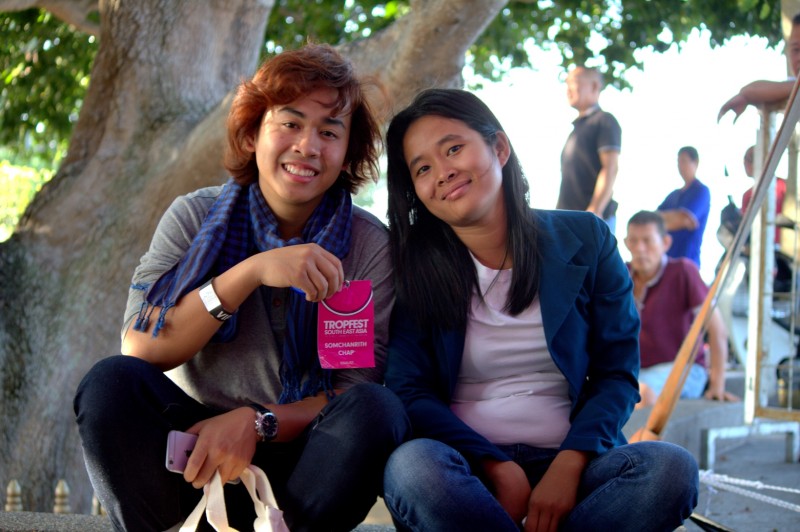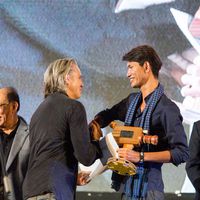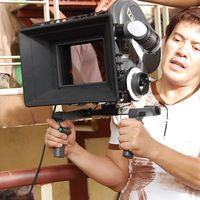Tropfest Southeast Asia 2015 | Interview with filmmaker Somchanrith Chap
 [caption id="attachment_49734" align="aligncenter" width="620"]
[caption id="attachment_49734" align="aligncenter" width="620"]As part of the media partnership with Tropfest South East Asia, this month ASEF culture360 will publish a series of interviews with some of the filmmakers who participated in the short film competition. Somchanrith Chap won the third prize at this year’s short film competition.
Over 20 years ago, John Polson started the Tropicana Short Film Festival (as it was originally known) as an informal short film screening for cast, crew and friends at the Tropicana Cafe in Sydney. More than 200 people showed up for that first screening. Inspired by the turn out, John decided that a full-fledged short film festival was the next step. The festival has since expanded to become the world’s largest short film festival, and now includes screenings in New York, New Zealand, Abu Dhabi, and – since 2014 – Penang, Malaysia. The festival is free to attend and showcases the finalist films from the Tropfest SEA short film competition, which is open to all residents and citizens of Southeast Asia.
Somchanrith Chap joined BBC Media Action in 2013 as the writer for the flagship film production of Down This Road which premieres at the Cambodia International Film Festival in December and which was shown on the national broadcaster CTN in March. Since then he has written and directed a number of TV Drama Episodes for Love9 the hit series in Cambodia of 2014. He wrote and directed Cambodia’s first western, A Fistful of Pebbles and is working on a number of historical feature scripts. He is one of the five directors shooting an anthology feature film, Om Boh: a love letter to Phnom Penh slated for Production in 2015. In this interview, he talks about his latest movie, presented this year at Tropfest SEA.
- Can you tell us a bit about your short film?
The idea behind my short film is very simple. It’s a classic story between a hero and a villain. The underdog fighting for what is right and what he believes in. But we wanted to make something that has never been done before in Cambodia. And that’s why the film is how it is, a Western-style film shot in the East.
- Did you experience any challenges in producing your short film?
There are different challenges in each stage. During pre-production, the challenge was the preparation for the shoot and finding the budget to produce the film. In the end, I found a couple of producers but still I had to invest my own money that I had been saving. During the production, the challenges were the weather and short production period since we only had 3 days to shoot the film. During the post production, the challenge was the time constraint and finding the right music.
- Did you produce any short films before entering Tropfest SEA?
Yes, I’ve made a few with my friends but it was just for fun.
- What opportunities do you think Tropfest SEA will open up for you as a new filmmaker?
I believe that Tropfest SEA has given me the opportunity to meet other filmmakers like myself from the region, building networks with people from the industry and most importantly, screening my film to a big audience.
- What is your opinion on the film industry in South East Asia and what are your hopes for the future of film industry in your country?
From my perspective, the film industry in South East Asia is not doing well. The passion still burns but instead of telling stories that we want to tell, we strive to make our films look artistic therefore losing the essence of original storytelling. If your story is artistic, your film will be. The lack of good screenwriters is another major problem I see in the SEA industry or at least in my country (Cambodia). To be honest, I do have hopes for the future of film industry in my country but it’s just not high.
If people keep making horror comedy films, nobody is going take Cambodia seriously.
- Do you have any advice for all the future filmmakers out there?
I don’t think I’m qualified to give advice because I’m still learning myself. All I can say is that if it’s really your passion, say what you want to say, keep writing script, keep making them into reality and never stop.



